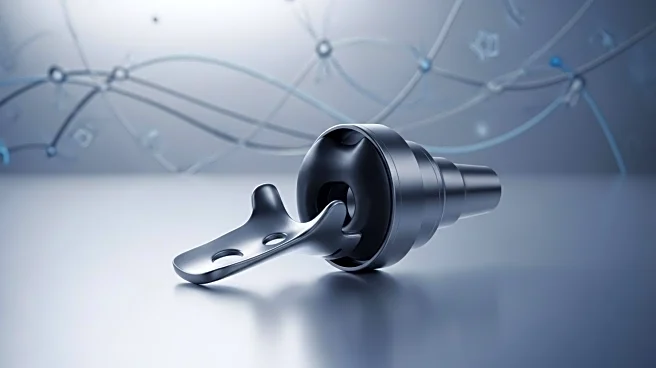What's Happening?
Johnson & Johnson has announced plans to spin off its orthopedics business into a standalone company within the next 18 to 24 months. This move marks the company's second major spinoff in two years, as it aims to focus on higher-growth healthcare segments. The orthopedics unit, which includes products like hip, knee, and shoulder implants, generated approximately $9.2 billion last year, accounting for about 10% of J&J's total revenue. The new entity will be named DePuy Synthes and will be led by Namal Nawana, an industry veteran. J&J has also projected faster growth into 2026, driven by new drug launches and an enhanced medical devices portfolio, with expected total revenue growth exceeding 5% next year.
Why It's Important?
The decision to spin off the orthopedics business is significant as it represents a strategic shift for Johnson & Johnson, allowing the company to concentrate on segments with higher growth potential. This move could potentially enhance J&J's competitiveness in the healthcare market, particularly in pharmaceuticals and medical devices. However, the spinoff also raises concerns, as the orthopedics division contributes significantly to the company's revenue. Investors and analysts are closely watching the impact of this decision on J&J's stock performance, especially given the recent rally in its shares. The broader implications include potential changes in market dynamics and competitive strategies within the healthcare industry.
What's Next?
Following the spinoff, the newly formed DePuy Synthes will need to establish its market presence and operational independence. Johnson & Johnson will continue to focus on expanding its pharmaceutical and medical devices segments, leveraging new drug launches and technological advancements. Stakeholders, including investors and healthcare professionals, will be monitoring the transition closely to assess its impact on J&J's overall business strategy and financial performance. Additionally, the company may face challenges related to trade and tariffs with China, which could influence market conditions and investor sentiment.
Beyond the Headlines
The spinoff of J&J's orthopedics business could have long-term implications for the healthcare industry, potentially influencing mergers and acquisitions, innovation, and competition. As the company refocuses its efforts on high-growth areas, it may drive advancements in medical technology and pharmaceuticals, impacting patient care and treatment options. The strategic pivot also highlights the evolving landscape of healthcare, where companies are increasingly prioritizing segments with robust growth prospects.










